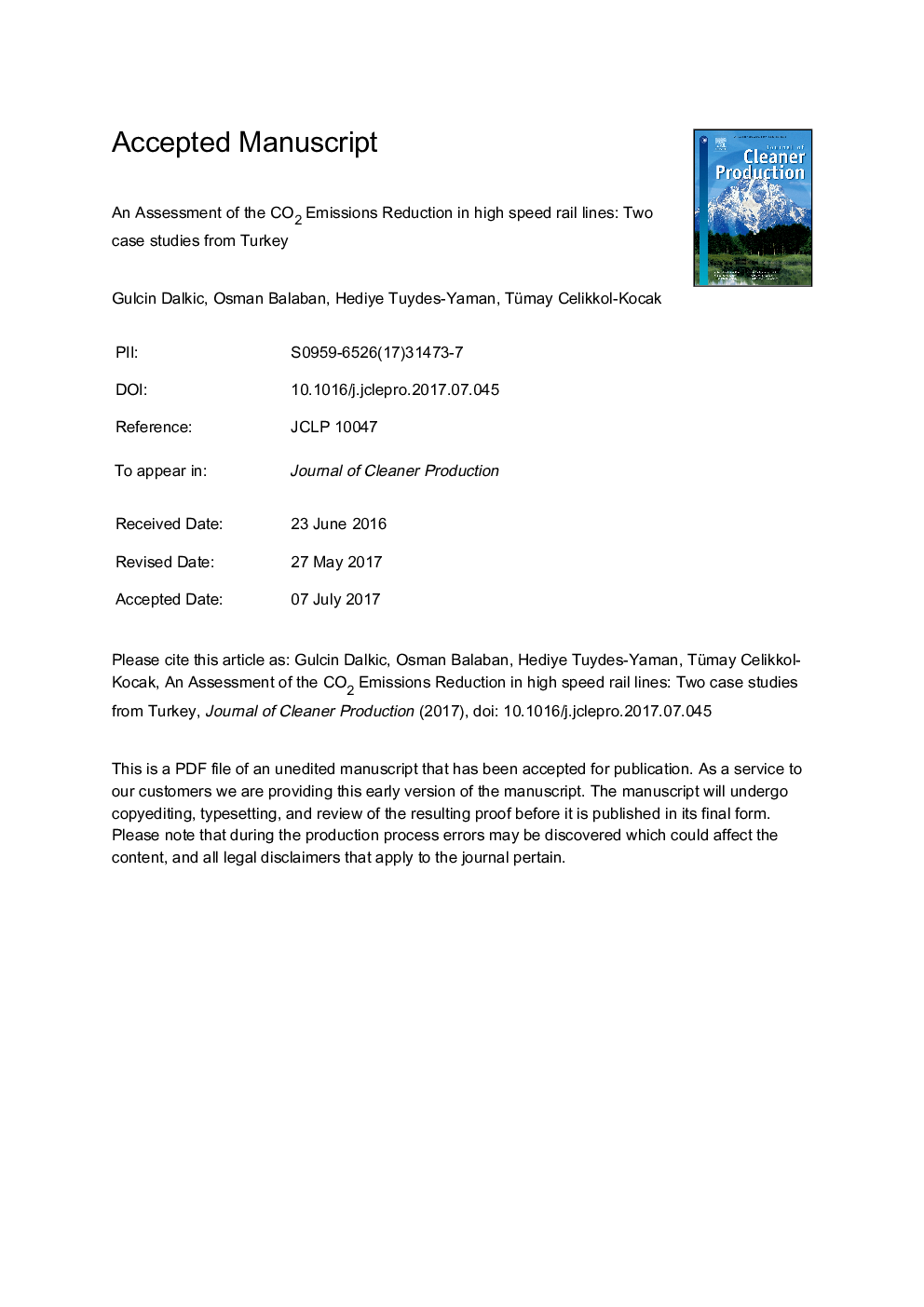| Article ID | Journal | Published Year | Pages | File Type |
|---|---|---|---|---|
| 5480044 | Journal of Cleaner Production | 2017 | 36 Pages |
Abstract
The results suggested that HSR caused a total reduction of 24.3 ktCO2 currently on two study corridors, and may even result in a reduction of 452.7 ktCO2 in 2023, if estimated ridership is realized in all lines. Line based analyses showed that HSR performance in reducing CO2 emissions was limited as highly demanded HSR lines currently served short routes and mostly caused modal shift from bus services, which were also efficient compared to car. The CO2 emissions reduction potential of future HSR services can be higher if a) new HSR lines can create a network effect along the main corridor and b) supplementary policies can be developed to generate high HSR demand that would be shifted from car, and even air, on the longer routes.
Related Topics
Physical Sciences and Engineering
Energy
Renewable Energy, Sustainability and the Environment
Authors
Gulcin Dalkic, Osman Balaban, Hediye Tuydes-Yaman, Tümay Celikkol-Kocak,
